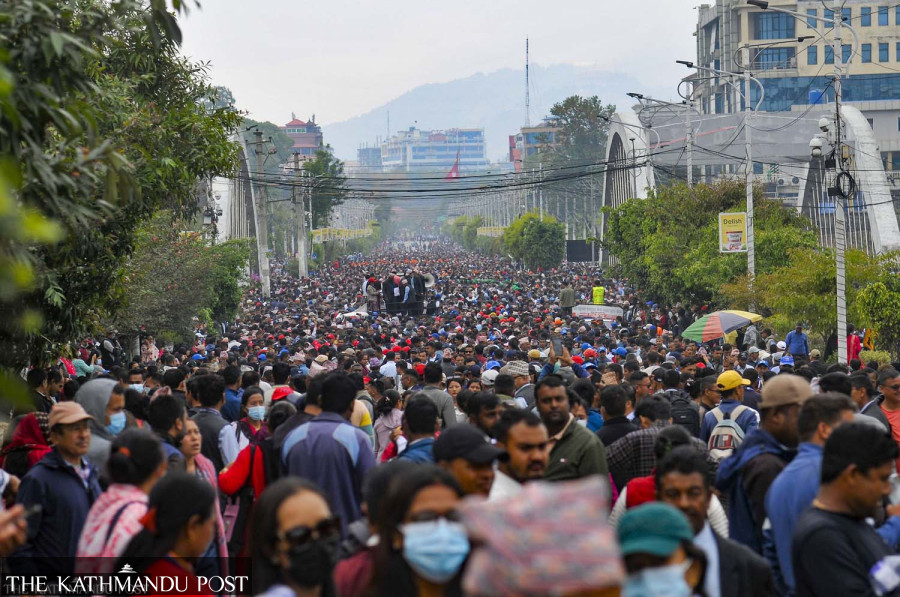National
School teachers reject education bill, threaten stronger protests
They oppose temporary teachers’ exclusion from internal competition, tough promotion rules, transfer to local units.
Post Report
The Nepal Teachers’ Federation has expressed serious reservations over the School Education Bill passed by a parliamentary subcommittee and warned of stern protests if the bill is not revised by the Education, Health and Information Technology Committee of the House of Representatives.
The umbrella body of school teachers, which had staged a month-long Kathmandu-centric protest demanding the School Education Act, said the bill does not respect the teachers’ movement and past agreements.
A subcommittee of the Education Committee of the House on Sunday submitted its report resolving most of the disputed issues in the bill. Except for the modality to regulate private (institutional) schools and management of Early Childhood Development instructors, the panel has resolved all the differences in the bill.
The bill, with 163 sections, had received 1,758 amendments from 161 lawmakers. It took one and a half months of rigorous discussions for the panel to reach a conclusion. However, the federation has said the revised version is more regressive than the original bill that was registered in Parliament in September 2023.
“The agreement for internal competition for temporary teachers [including relief quota teachers, temporary contract teachers, teachers from former lower secondary schools, learning grant teachers, technical stream, and special education] has not been upheld,” reads the statement issued by the federation on Tuesday. “Furthermore, temporary contract and learning grant teachers have been excluded from internal competition.”
The redrafted bill envisions internal competition for 60 percent of the seats, with the remaining 40 percent vacancies to be filled through open competition. The federation has also expressed dissatisfaction with the minimum service requirement for automatic promotion as the bill states teachers must serve at least seven years to qualify.
“It does not include any provision for counting years of temporary service for teachers who later became permanent. The agreement to take temporary service periods into account to qualify for the pension has been ignored in the new bill,” reads the statement.
The federation also seriously objects to the provision placing school teachers under local governments. In line with the Constitution of Nepal, the panel agreed that teachers would work under local governments, but it allows for one-time transfers between and within local units and provinces.
“Teachers are being forcibly transferred to the local level without any benefits or alternatives,” said the federation. It also opposes the clause banning teachers’ political affiliation and the bar on head teachers becoming federation members. “This undermines the right to engage in professional trade union activities of teachers and staff.”
The proposed provisions are certain to diminish respect for and interest in the teaching profession at the school level instead of making it dignified and attractive to draw in top talent, according to the federation.
The umbrella body of school teachers also objects to the proposed removal of education units, which are district offices of the federal government. It argued that eliminating such units would affect professional security and dignity of teachers and staff.
“It seems the state is inviting a new wave of teacher and staff protests,” warned the federation, urging all teachers and staff to remain vigilant and prepared for a movement at any time.
Through the statement, the teachers’ body urged the Education Committee to revise the bill to address their concerns. “If it doesn’t happen, teachers and staff will take to the streets with an even larger force. We want to make it clear that the state will be solely responsible for any grave situation that arises as a result,” said the federation.
The parliamentary committee on education will start deliberations on the bill on Wednesday. It will be submitted to the House plenary after endorsement. The Nepali Congress and the CPN-UML have committed in writing to ensure that the bill gets through the lower house on May 29.




 10.12°C Kathmandu
10.12°C Kathmandu














